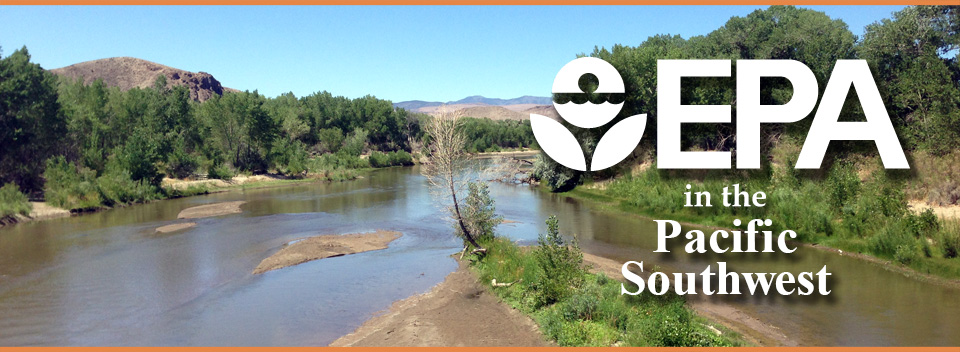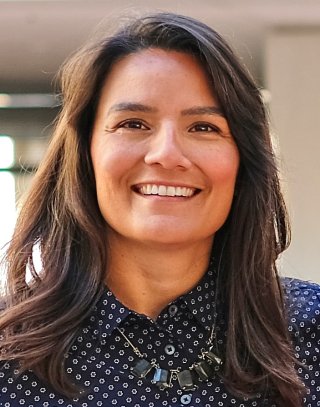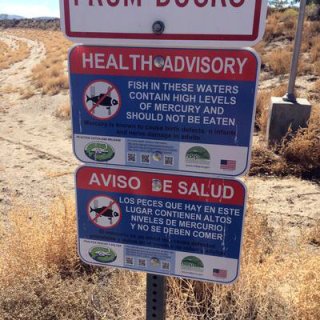January—February 2023 Newsletter

Regional Administrator Guzman in the Pacific Southwest
The Pacific Southwest is home to a wide array of diverse communities and Regional Administrator Martha Guzman has been meeting with residents and elected officials to discuss EPA’s current priorities and goals across the region.
The Regional Administrator was recently in Los Angeles to celebrate a $500,000 Brownfields Environmental Job Training Grant awarded to the Los Angeles Conservation Corps. U.S. Representatives Jimmy Gomez and Sydney Kamlager-Dove also took part in the event. The award was funded through the Bipartisan Infrastructure Law and will enable the LA Corps to help underserved residents in Los Angeles County learn new trades and advance environmental justice.
Also in the Los Angeles area, the Regional Administrator recently met with officials from the California Department of Toxic Substances Control, the City of Vernon, and impacted communities to discuss the state's ongoing cleanup at the former Exide battery recycling facility in Vernon. As the process to consider designating Exide as a Superfund cleanup site moves forward, collaboration with state, local and community partners is key.
Collaborating with our tribal partners is a priority for EPA and the Regional Administrator recently attended the Regional Tribal Operations Committee meeting for discussions with Tribal colleagues about a wide variety of environmental matters. The Bipartisan Infrastructure Law funding of $60 billion to support the health, equity, and resilience of American communities, including Tribal Nations, was discussed.
Regional Administrator Guzman also held meetings with Senator Feinstein (CA) to discuss U.S.-Mexico border pollution issues and with Senator Hirono (HI) to discuss EPA’s work to close illegal cesspools and the proposed consent order related to the closure and defueling of the Red Hill Fuel Storage Facility in Hawai'i.
- Photo Gallery
- News Release: EPA Awards $500,000 Environmental Job Training Grant to Los Angeles Conservation Corps
- Exide
- Cesspools in Hawai'i
- Tribal Programs in the Pacific Southwest (Region 9)
Addressing Mercury Contamination at the Carson River Superfund Site
New Bipartisan Infrastructure Law funding is enabling EPA and partners to continue addressing mercury contamination at the Carson River Mercury Superfund site. Located in northwest Nevada, the site covers about 330 square miles and extends through five counties. Gold and silver mining, from about 1860 until 1890, released about 14 million pounds of mercury into the Carson River drainage. Moving through the water, toxic mercury got into soil and sediments and also into fish and wildlife. Protecting residents, especially children, from contamination is EPA’s top priority. In 1990, EPA added the site to its National Priorities List which includes some of the most toxic Superfund sites in the country. Due to the mercury contamination, state health advisories recommend not consuming fish from certain areas within the site.
- KTVN-TV: Mercury In Carson City River: How It Got There And What To Do About It
- News Release: Biden-Harris Administration Announces New Funding for Cleanup in Nevada
- Carson River Mercury Superfund Site
Enforcement Update
Protecting Public Health in O’ahu, Hawai'i
EPA has issued a proposed consent order that requires steps to ensure the safe defueling and closure of the Red Hill Fuel Storage Facility at Joint Base Pearl Harbor-Hickam. The proposed order will also require the Navy and Defense Logistics Agency (DLA) to properly operate and maintain the Pearl Harbor-Hickam drinking water system to protect the health and safety of its consumers. This proposed order is the latest step in EPA’s oversight of the Navy’s response to the November 2021 fuel release from Red Hill and the subsequent decision of the Department of Defense to close Red Hill. “This order demonstrates EPA’s commitment to protect the O’ahu aquifer from contamination. Our proposed order requires the Navy and DLA to safely and expeditiously defuel and close the storage tanks at Red Hill, while also ensuring that the Navy will properly maintain and monitor the Base’s drinking water system. Such efforts are essential to safeguarding the health and the environment of communities around O’ahu,” said EPA Pacific Southwest Regional Administrator Martha Guzman. EPA has provided several opportunities for public comment on the proposed order.
Funding Environmental Justice
EPA is soliciting applications for projects that support community-based nonprofit organizations in their efforts to address environmental and public health issues in communities disproportionately burdened by environmental harms. This competition is being launched in order to meet the goals and objectives of two Executive Orders issued by the Biden Administration that demonstrate EPA’s and the Administration’s commitment to achieving environmental justice. The projects will be funded through the Inflation Reduction Act. Applications are due April 10, 2023. Learn more
Bipartisan Infrastructure Law Funding to Address Emerging Contaminants like PFAS in Drinking Water
EPA has announced the availability of $2 billion from President Biden’s Bipartisan Infrastructure Law to address emerging contaminants, like Per- and Polyfluoroalkyl Substances (PFAS) in drinking water across the country, including a total of $305 million to Arizona, California, Hawaii, Nevada and the Pacific Islands. This investment will be made available to communities through EPA’s Emerging Contaminants in Small or Disadvantaged Communities Grant Program and will promote access to safe and clean water in small, rural, and disadvantaged communities while supporting local economies. “With this new EPA support, small and underserved communities will be able to fund projects to address PFAS and other contaminants in their drinking water. This funding will advance efforts to reduce or eliminate the risk of exposure to these harmful contaminants in drinking water supplies," said EPA Pacific Southwest Regional Administrator Martha Guzman.
Emerging Contaminants in Small or Disadvantaged Communities Grants
Public Involvement
EPA’s Pacific Southwest office encourages public engagement in addressing environmental issues through public meetings, events and other opportunities for public participation.


